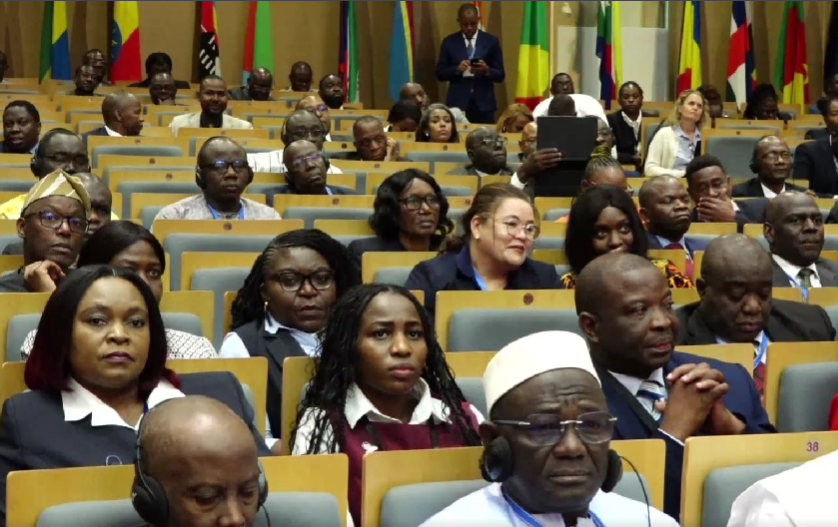 Leaders during the World Health Organization (WHO) Regional Committee for Africa (RC75) held in Lusaka on August 27, 2025 / Screengrab.
Leaders during the World Health Organization (WHO) Regional Committee for Africa (RC75) held in Lusaka on August 27, 2025 / Screengrab.African leaders and partners have called for urgent action and accountability to accelerate progress in the health and well-being of women, children, and adolescents.
The call came during the Seventy-fifth Session of the World Health Organization (WHO) Regional Committee for Africa (RC75), held in Lusaka.
The session saw a record level of engagement, with 43 statements delivered, 30 from Member States and 13 from partners, reflecting strong political will.
Despite decades of commitment, participants agreed that action still lags. Maternal and child deaths remain high across the continent, with Africa accounting for 70 per cent of global maternal deaths and more than half of child deaths.
“The challenge is ensuring commitments are implemented, tracked and reviewed transparently, with communities, youth and civil society meaningfully engaged,” the Partnership for Maternal, Newborn and Child Health (PMNCH) said.
The group stressed the need for clear milestones, regional peer review, and systematic reporting of measurable action.
WHO’s working paper (AFR/RC75/5) outlined three flagship approaches, such as increasing investments in health as a development priority, strengthening health systems, and delivering essential health services across the life course.
Kenya raised concerns about commodity gaps and skilled health workforce attrition, while Malawi pointed to high rates of teenage pregnancies, saying the country is working to improve the availability of life-saving commodities.
The Seychelles urged action on robust data systems to guide evidence-based decision-making.
Zambia reported that they are using data to drive health programmes and address challenges such as health system inequalities.
Senegal and Kenya, both members of the Global Leaders Network (GLN), pushed for formal accountability mechanisms within African Union structures.
“Senegal calls for joining the Global Leaders Network to institutionalise accountability for the health of women, children and adolescents within the organs of the African Union (AU),” Senegal’s representative said.
Zambia’s President Hakainde Hichilema said the challenges are only beginning and that there is a need to respond positively and aggressively.
“I was born in a health centre with no water, no electricity. My grandmother was the birth attendant,” he said.
He called on African leaders to act on four key areas: health system resilience, local manufacturing, regional solidarity, and alignment with global frameworks.

















